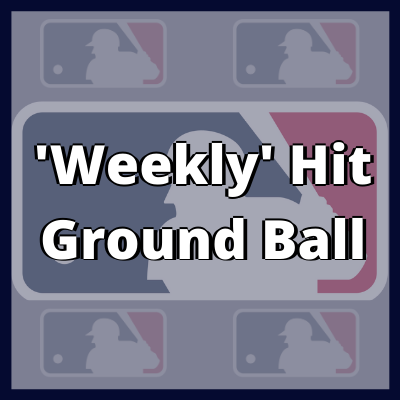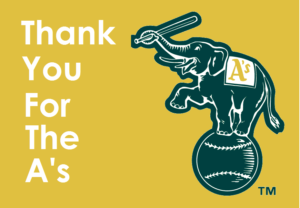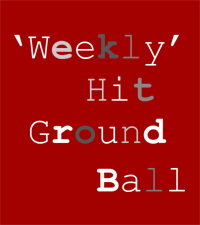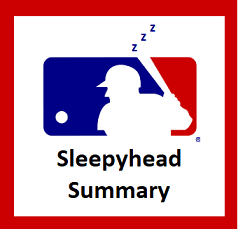
A week ago I wrote the following:
“The MLB Winter Meetings have begun in San Diego and plenty of people are speculating about what big free agent news will be announced over the next few days (likely very little, based on recent years)”.
You could say I was a long way off the mark with that comment, although maybe I can latch onto the final caveat to save a bit of face.
Over the past two off-seasons there has been considerable discontent among players as to how the free agent market has failed to develop in the way they expected. Both times the fall-out descended into an argument with teams on one side and players and agents on the other. It takes two sides to make a deal. Whether it was the players being greedy or the teams being cheap depended on which side of the fence you were shouting from.
The first month and a half of the 2019/20 off-season can’t help but make you lean towards the players and agents on this one.
Take Mike Moustakas as a prime example. He had to accept one year deals in each of the previous two off-seasons due to finding no multi-contact offers to his liking. This time around he’s signed a four-year contract with the Cincinnati Reds. Whilst we do have to take the qualifying offer, and resulting loss of a draft pick, into account, that doesn’t go far enough as an explanation as to why he suddenly is now worthy of a multi-year commitment. The difference this time is in a greater number of teams looking to add a quality infielder.
It comes back to a topic I discussed just over a month ago, that of the essential element of competition that drives a free agent market. The impasse in the past two off-seasons has come from teams not upping their offers because they knew that they didn’t have to as part of winning the bidding, whilst players and agents were waiting for better offers that they thought should come, but never did.
This year, things have changed.
The Philadelphia Phillies were one of the few teams to make a big push a year ago, not least in the Bryce Harper contract, and the end result was making it eight consecutive seasons without a play-off appearance. The Phillies were never going to stand still after that disappointment and they’ve acted by bringing in Joe Girardi as manager to replace Gabe Kapler and then signing Zack Wheeler to a five-year, $118m contract and Didi Gregorius to a one-year, $14m contract.
Their NL East rivals, the Washington Nationals, were not going to take their foot off the gas after winning the World Series either. Having lost Harper last year, and rightly expecting to lose Anthony Rendon this year, there was no way they were going to let Stephen Strasburg be tempted by another team’s offer. That was why they blew everyone else out of the water with their seven-year, $245m contract offer that Strasburg accepted on Monday. It’s a huge commitment in a pitcher who has had injury problems in the past and, by all accounts, was not looking to leave Washington anyway, but the Nationals were not prepared to take any chances. They could afford to offer that contract, so they did.
This immediately ignited the market for Gerrit Cole. Strasburg’s deal took the other outstanding starter off the board and also helped to set the parameters for the contract Cole clearly was going to command.
A year ago, everyone was waiting for the New York Yankees to jump in and ramp up the bidding stakes for Manny Machado and Bryce Harper. There was no waiting around this year. The Yankees’ record of making the World Series at least once in every decade from the 1920s on came to an end in their ALCS defeat to the Houston Astros. With no Bronx Fall Classics in the 2010s, and a team with a great offence and bullpen but questionable starting pitching, there was no way that the Yankees would allow Cole to go anywhere else. No messing about: they put the largest ever contract for a pitcher on the table, nine-years, $324m, to make sure he became a Yankee.
And that then put the LA Angels on the clock. It was already a source of embarrassment for owner Arte Moreno that his team had squandered the first eight full seasons of Mike Trout, genuinely in the running to be considered the greatest player of all-time by the end of his career, by turning it into just one Division Series defeat. Having given Trout the most lucrative contract ever (12 years, $426.5M) to stay with the team for years to come prior to the 2019 season, there was no way that the Angels could get through this off-season without signing a big-ticket free agent.
With Strasburg and Cole off the market, the Angels immediately offered Anthony Rendon a seven-year, $245m contract. Just as the Nationals couldn’t let Strasburg leave and the Yankees couldn’t let Cole sign elsewhere, the Angels were prepared to offer whatever it took to make sure they didn’t miss out on Rendon.
This is what happens when teams with big pockets are motivated to out-spend each other to win now. Whatever Rob Manfred may try to claim, that has not been the context in which the free agent market has played out over the past two off-seasons.
It’s made for an exciting Winter Meetings and sets up the rest of the off-season perfectly.




